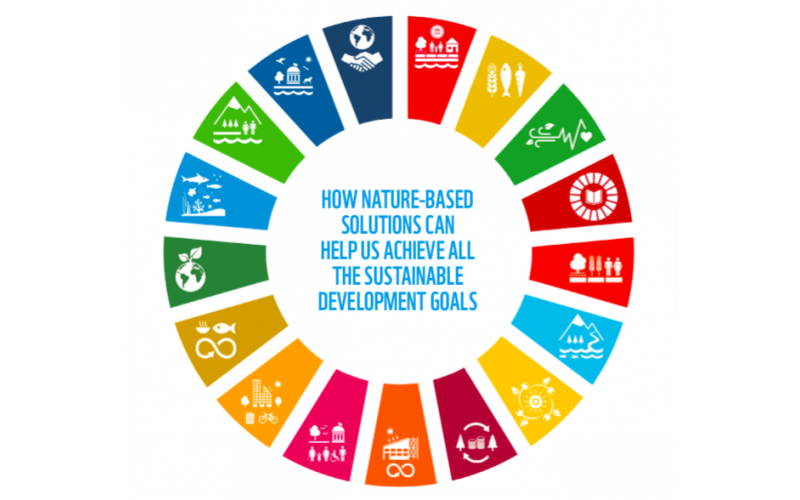Nature is essential to achieving all the Sustainable Development Goals. It provides us with vital resources such as food, air, water, and energy. In addition, nature can be harnessed to create solutions to the challenges set out in the SDGs, solutions that are positive for social, economic, governance and environmental outcomes. For example, planting trees alongside livestock and crops contributes to climate change resilience because trees naturally capture and store carbon dioxide from the atmosphere. Trees also help to regulate soil and water quality in the face of extreme weather patterns.
Despite its many contributions, nature is being degraded at a rapid rate with alarming consequences. The latest global report on nature (IPBES-7) reveals that current trends will undermine progress towards 80 percent of reviewed SDG targets relating to poverty, hunger, health, water, cities, climate, oceans, and land.
Ultimately, the degradation and loss of nature affects all of us as it undermines our food systems, our economic systems and our well-being. However, the most severe effects will disproportionately impact specific groups in society, particularly people living in poverty.
These groups of people are less likely to be able to access support or replace the natural services and resources they have lost. At the same time, these communities are powerful agents of change in our efforts to build a sustainable future. By working with nature, we can develop the most effective solutions for peaceful, prosperous and equitable societies.
This publication shows how nature-based solutions can contribute to achieving all the Sustainable Development Goals and deliver sustainable development for everyone. The following 17 case stories
demonstrate the importance of maintaining the integrated framework of the SDGs in implementation and follow-up.
They also highlight some of the levers needed to catalyse nature-based solutions for the SDGs. These levers include mainstreaming nature into decision-making, building multi-stakeholder partnerships and strengthening good governance so that the agency, dignity and human rights of at-risk communities inform global action on the 17 goals.

